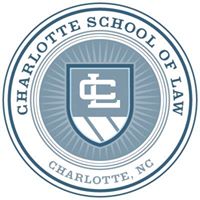Some Charlotte School of Law students receive federal loan money

The U.S. Department of Education has released the second disbursement of direct loan funds to Charlotte School of Law.
The money was released May 5, a Department of Education spokesperson told the ABA Journal on Monday.
The department in December announced that it was pulling the Charlotte School of Law’s federal loan money, after the ABA placed the school on probation. According to the department, which was then led by an Obama administration appointee, Charlotte School of Law
made “substantial misrepresentations” to current and prospective students regarding its compliance with ABA accreditation standards.
A spokesperson for the law school did not respond to an ABA Journal interview request.
“I participated in the 2017 commencement, and it was a celebration for sure,” says R. Lee Robertson Jr., president of the Charlotte School of Law alumni association. He’s hopeful that the school will be allowed to remain open indefinitely.
“I’m hopeful that the Department of Education will restore federal funding to permit the Charlotte School of Law to continue providing an excellent legal education to students from around the world,” Robertson wrote in an email to the ABA Journal. “This entire situation has shifted the focus from the good work that our alumni are doing across the United States to serving the underserved, and making their communities better places to live. Mistakes in the administration of the law school were clearly made, but I am hopeful that a smaller, focused Charlotte School of Law will be able to continue providing legal training for years to come.”
Charlotte’s student aid disbursements are available based on when a student’s financial aid was packaged, according to Robertston. Matt Blevins, who graduated from the law school this month, says that the recently released federal loans are only available to individuals with fall-spring packages. Students like him, who attended summer school, reportedly are not eligible.
Blevins took an institutional loan from the law school to pay for the spring 2017 semester. It was one of three options, according to him, with the other two being paying tuition out-of-pocket, or withdrawing from classes by May 9. There’s zero interest on the institutional loans, according to an email the school sent students, and payments are deferred for 12 months after a recipient’s last day of law school attendance.
If he didn’t sign off on the institutional loan by May 17, Blevins says, his grades, transcripts and degree would have been withheld. It can’t be consolidated into federal loans, adds Blevins, who estimates that the development will raise his monthly student loan payment by more than 50 percent.
Out of the country’s six for-profit law schools that have ABA accreditation, three, including Charlotte, are part of the InfiLaw System, a consortium owned by the private-equity firm Sterling Partners. Arizona Summit School of Law, another InfiLaw school, was put on probation by the ABA in March. The third, Florida Coastal School of Law, is not on probation, but in January it was found to be out of compliance with the U.S. Department of Education’s debt-to-income ratio requirement placed on for-profit schools.
“I had nothing to do with the poor decisions the administration made over the course of several years that resulted in the school’s probation, or the resulting DOE’s suspension of funding,” Blevins wrote in an email to the ABA Journal. “However, I am being punished for these mistakes now, while InfiLaw and CSL get to continue profiting from me. That sounds unreasonably favorable to the parties who put students like me in this situation.”
When the Department of Education officially cut off Charlotte School of Law’s federal student aid in January, the school had said that it would continue to try and get the funds released once the Trump administration was in place. In April, Above the Law reported that the law school had paid the Podesta Group, a lobbying firm, $50,000 for its services. One of its lobbyists, Lauren Maddox, prepared U.S. Department of Education Secretary Betsy DeVos for her confirmation hearings, Law.com reports.
“The current appearance is that they got the deal they were hoping for and will now try to find some way to weasel their way back in [to the federal loan program]. Certainly there is a reason for Charlotte to be more optimistic than it was,” Ben Miller, a former senior policy adviser in the Department of Education who now works with the Center for American Progress, told Law.com.
Also, Charlotte School of Law faces a civil fraud investigation from the North Carolina attorney general’s office. The demand (PDF) seeks documents that address “alternative financing” for CSL students, as well as documents that explained any plan to credit the students for federal funds, including what the plan was if the school’s Title IV eligibility was not reinstated.
The state agency in April sent a letter (PDF) to DeVos, expressing concern about Charlotte School of Law and federal rules regarding deadlines for student loan discharge.
Chidi Ogene, president of Charlotte School of Law, in a response letter (PDF) to DeVos described the state attorney general’s actions as “premature and improper,” because the law school still has ABA accreditation and is serving 220 students. According to Ogene’s letter, Charlotte School of Law’s application for reinstatement of federal student aid was submitted March 29 at the suggestion of the department’s acting general counsel.
Write a letter to the editor, share a story tip or update, or report an error.


